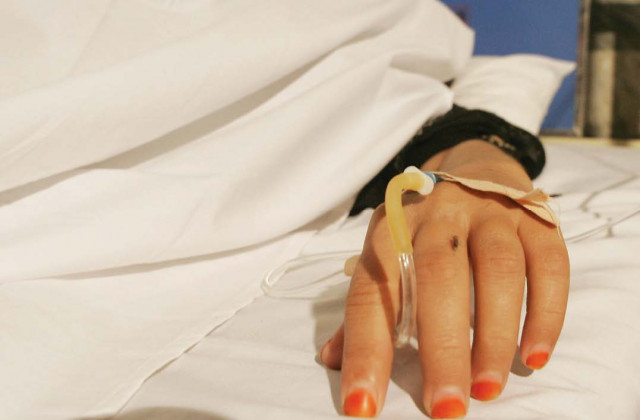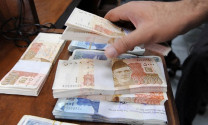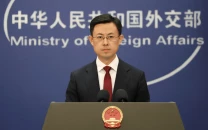Dreaded disease: Lack of awareness about cancer worsens dilemma
With rising number of cases, country confronts greater challenges than rest of the world.

With rising number of cases, country confronts greater challenges than rest of the world. PHOTO: ATHAR KHAN/EXPRESS
Awareness-raising about cancer is as important as resources for its treatment, said experts on Tuesday.
At the annual seminar to commemorate “World Cancer Day,” organised by the Nuclear Medicine Oncology and Radiotherapy institute (NORI), speakers Pakistan was confronting greater challenges than the rest of the world, especially in creating awareness about medical conditions like cancer.
Pakistan Atomic Energy Commission (PAEC) Chairman Dr Ansar Pervaiz said, “Sharing information about cancer is still considered a cultural and social taboo.” Despite working with limited resources, NORI has managed to successfully operate 18 institutions across the country, he added.

However, setting up institutions is only part of the solution and informative campaigns must be encouraged. “It’s a sad state, in Pakistan, polio workers are not successful in giving drops, let alone people walking in for a mammogram,” said Pervaiz.
“We have not been successful in devoting enough time, energy and resources to create awareness about cancer,” he lamented.
Prof. Mohammad Fahim of NORI said that in 2013, more than 4,000 patients were registered with NORI from Islamabad alone. Out of every 10 patients, three were diagnosed with breast cancer. Moreover, 22 per cent of global cancer deaths are caused by smoking.
Fahim said due to lack of information, fewer number of patients undergo routine checkups that help identify the disease at an earlier stage. “Patients who come to us are usually in their fourth stage, treating them in limited time for higher costs is one of the main issues we face in Pakistan.” According to International Agency for Research on Cancer (IARC), an estimated 19.3 million new cancer cases will be detected by the year 2025 globally.

Foreign Secretary Aizaz Ahmad Chaudhry said getting his treatment from Pakistan was the best decision of his life. Having been treated in the Netherlands, New York and by NORI, he added that, “This was a steep fall for me in the beginning, but the decision to get treated in Pakistan has strengthened my faith in the country and its healthcare.”
“Due to the PAEC’s great work, the trend of cancer patients being treated in Pakistan has risen,” he added.
The conference was followed by a walk, members of Saach Foundation, students from Tameer-e-Millat Foundation (TMF) School and civil society representatives, doctors, medical and nursing students, bearing banners inscribed with encouraging slogans for cancer victims.
Head of oncology at Shifa International Hospital, Dr Kamran Rasheed said cancer is avoidable by pursuing a healthy lifestyle and physical activities. He stressed on the need to quit smoking, as tobacco is a root cause of many types of cancer. Cancer is 90 per cent curable if diagnosed in time, added Rasheed.
Dr Reshma Aziz said one in eight Pakistani women is at risk of developing breast cancer. However, with no centralised cancer registry, data on total number of patients is unavailable. Advising women on self-examination, she said “If you feel a lump, consult your doctor for diagnosis and treatment.” Aziz supervises and conducts free breast cancer screening and consultancy at the Shifa Cancer Centre.
Published in The Express Tribune, February 6th, 2014.



















COMMENTS
Comments are moderated and generally will be posted if they are on-topic and not abusive.
For more information, please see our Comments FAQ